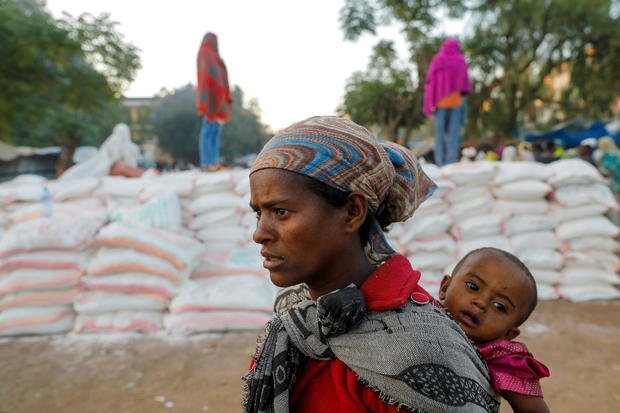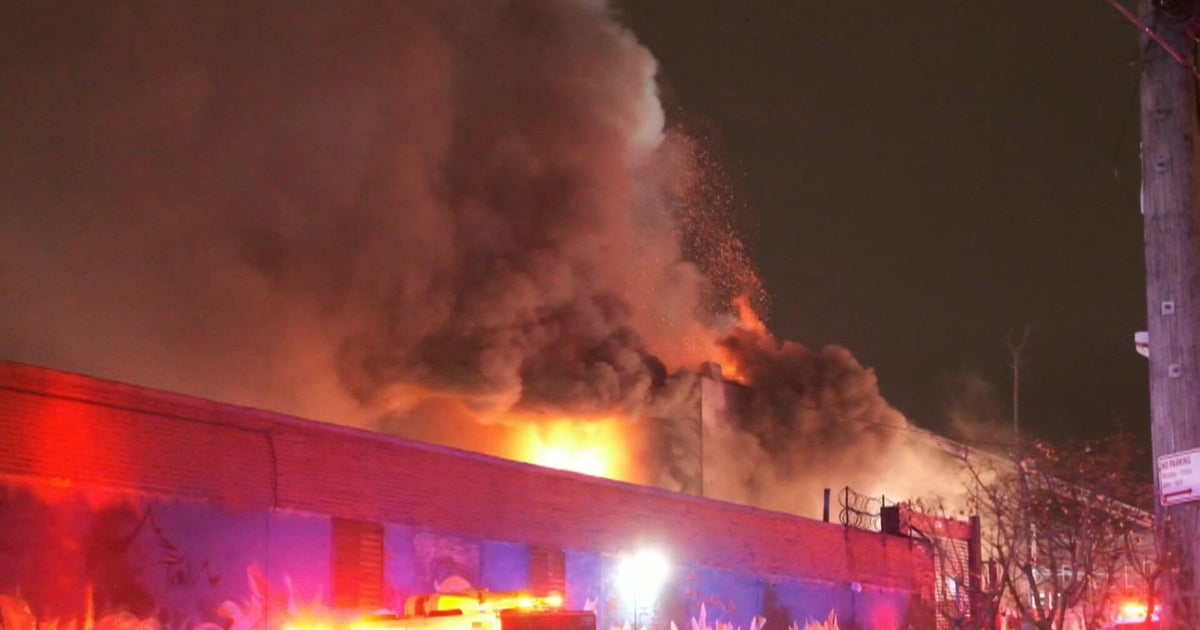As famine grips Ethiopia's Tigray region, government orders U.N. humanitarian workers to leave the country
United Nations — The humanitarian crisis in Ethiopia's Tigray region "is spiraling out of control," according to the U.N. humanitarian chief, Martin Griffiths, with 5.2 million people in need of food aid and 400,000 living in famine-like conditions. The crisis is one that U.N. agencies and other international aid organizations have been trying to address for months.
The U.N.'s World Food Program says malnutrition rates are 80% for pregnant and breastfeeding women in the region.
Yet as widespread starvation looms, the government of Ethiopia announced it was expelling seven U.N. humanitarian workers "for meddling in the internal affairs of the country." It said it considered the officials "persona non grata," an international law term usually applied to diplomats, and ordered them to leave within the next 72 hours.
The U.N. officials were from the children's agency (UNICEF), the U.N.'s human rights office (OHCHR), and five from the humanitarian aid agency (UNOCHA).
U.N. Secretary General Antonio Guterres said he was "shocked" by the expulsions, adding that "all U.N. humanitarian operations are guided by the core principles of humanity, impartiality, neutrality, and independence."
"In Ethiopia, the U.N. is delivering lifesaving aid — including food, medicine, water, and sanitation supplies — to people in desperate need," Guterres said.
He added that the U.N. is "engaging with the Government of Ethiopia in the expectation that the concerned U.N. staff will be allowed to continue their important work."
On Friday, the U.N. secretary general's deputy spokesperson, Farhan Haq, said that the U.N. sent a formal communication, called a "Note Verbale," to Ethiopia's mission to the U.N. "to clarify that it is the long-standing legal position of the organization not to accept the application of the doctrine of 'persona non grata' with respect to United Nations officials." In effect, the legal move appeared designed to delay the expulsion in the hope of a possible reversal.
Haq said Gueterres received a call Friday from Ethiopian Prime Minister Abiy Ahmed, "in which the Secretary General reiterated the position of the United Nations." He said Gueterres also sent a letter to the U.N. Security Council to inform them of the situation in Ethiopia and recent developments regarding U.N. staff.
Six nations on the Security Council — the U.S., Ireland, Estonia, France, Norway and the U.K. — immediately called for closed consultations on Friday. It is not the first time the Security Council has met on the Tigray crisis. In July, President Biden's U.N. Ambassador Linda Thomas-Greenfield warned of "tragedies of historic proportion" taking place in the region.
The U.N. agencies expelled have been outspoken on the horror that continues in Tigray, where they say rape has been used systematically to terrorize and brutalize women and girls, and workers have been killed.
The response to the expulsions from global leaders, including the U.S., was swift, with urgent appeals to Ethiopia to reverse the decision.
U.S. Secretary of State Antony Blinken "strongly" condemned Ethiopia's decision and said the U.S. "will not hesitate to respond decisively."
Samantha Power, head of the U.S. Agency for International Development, said that at a "time of looming, heartbreaking famine … the government [of Ethiopia] keeps taking steps to ensure aid won't reach them."
The Ethiopian government's action came as Martin Griffiths, the U.N.'s Under-Secretary-General for Humanitarian Affairs, called the crisis in Tigray a "stain on our conscience." He noted that only 10% of needed humanitarian supplies have been reaching Tigray in recent weeks.
Britain's U.N. Ambassador Barbara Woodward spoke to the press on Thursday after the Ethiopian government announcement. "The problem with Ethiopia really is that with 400,000 people now facing famine, that's more than the rest of people facing famine in the world, so we've got a real humanitarian emergency," she said.
"We've been working now for almost a year since the conflict started to get humanitarian access, to try and bring the parties to peace, so I think the latest developments will only intensify our determination to try and get a breakthrough," Woodward said.






